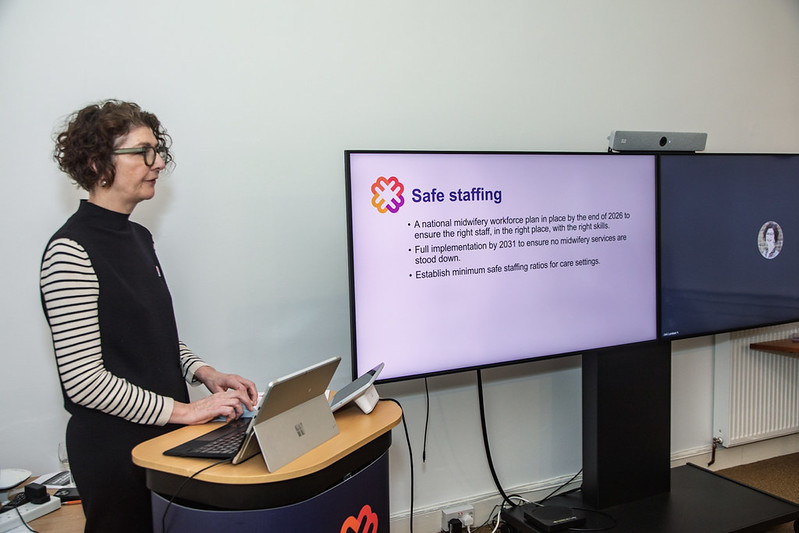“She said my breastmilk was not safe for my baby”
“They said my baby did not like my milk”
“They say my baby is upset after drinking my milk”
“He said I was making too much milk”
These quotes represent mothers who are desperate for support to breastfeed their babies who have been removed into foster care. I currently work as an infant-feeding advisor, and I was aware of a lack of evidence-based and readily available resources and guidelines to support this group of women, their babies, and the health and social care professionals supporting them. I decided we needed these in a timely manner, to support and improve the health and wellbeing outcomes of our most vulnerable women and their babies in society. I along with Vicky Mitchell, a PhD student, from The Mother, Infant and Child Health Research Unit at The University of Dundee, and a few other researchers from the same unit, teamed up to complete this important piece of work.
In the UK, the number of infants entering foster care is on the rise. Despite recommendations that infants are exclusively breastfed for the first six months of life and continue until they are two years of age, facilitating infants’ access to breastmilk is often absent from foster care policies. The cessation of breastfeeding may negatively influence children’s health by impairing physical, psychological, neurocognitive, and nutritional development and impacts mother’s health and attachment.
Our aim was to explore how foster families, health and social workers and mothers with infants in foster care can be supported in providing breastfeeding and expressed breastmilk (EBM) by identifying known barriers and facilitators. We conducted a scoping review which was later published in the international journal, Maternal and Infant Nutrition under the title ‘Supporting Breastmilk Feeding for Infants in Foster Care: A Scoping review’ (DOI: https://doi.org/10.1111/mcn.13810)
We conducted this in accordance with the Joanna Briggs Institute methodology for scoping reviews and registered a protocol on the Open Science Framework Registries. The search aimed to locate both peer-reviewed and grey literature. We searched CINAHL, PUBMED and MEDLINE in March 2023 with the keywords and synonyms of ‘breastfeeding’ and ‘foster care’. Papers meeting the inclusion criteria were identified through a two-stage screening process conducted by at least two researchers. Relevant data was then extracted into tables, and a thematic analysis was undertaken to identify themes relating to the research aims and objectives.
Eleven papers were included and as an outcome of the thematic analysis, five themes were identified: Is this safe; Substance use; Protecting the breastfeeding rights of mothers and infants; Making milk mobile through breastfeeding and EBM; Where are the policies; and Attitudes around breastfeeding.
The review highlighted the challenges of supporting breastmilk provision for infants in foster care. Foster parents expressed safety concerns in feeding infants in their care breastmilk, this included hygiene, transportation, transmission of substances in milk and the potential impact on the infant. Health and social care professionals who support mothers and foster families with breastmilk provision can lack sufficient knowledge to reassure and guide on the safe provision of breastmilk. For infants to receive breastmilk while in foster care, a team of well-informed, multi-disciplinary professionals working with a positive rights-based ethos around breastmilk provision is required.
The lack of peer-reviewed and grey literature evidence exploring the facilitation of breastfeeding and EBM for infants in foster care highlighted that breastfeeding is not prioritised when an infant is placed into foster care. It is well documented that breastmilk is a public health priority for protecting the health and development of infants. However, the breastfeeding rights of some of society’s most vulnerable mothers and their infants are not sufficiently addressed in policies and guidelines. Following on from the publication of our scoping review we are now developing a systematic review protocol which aims to identify the current evidence regarding illicit drug use and the safety on breastmilk. We also hope to identify funding that will allow us to engage with patient and public involvement work, particularly with the women and foster families so that we can listen to their lived experience and develop guidelines and policies that are centered on their needs to support breastmilk feeding for this population.


